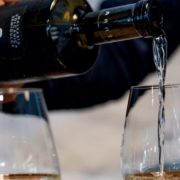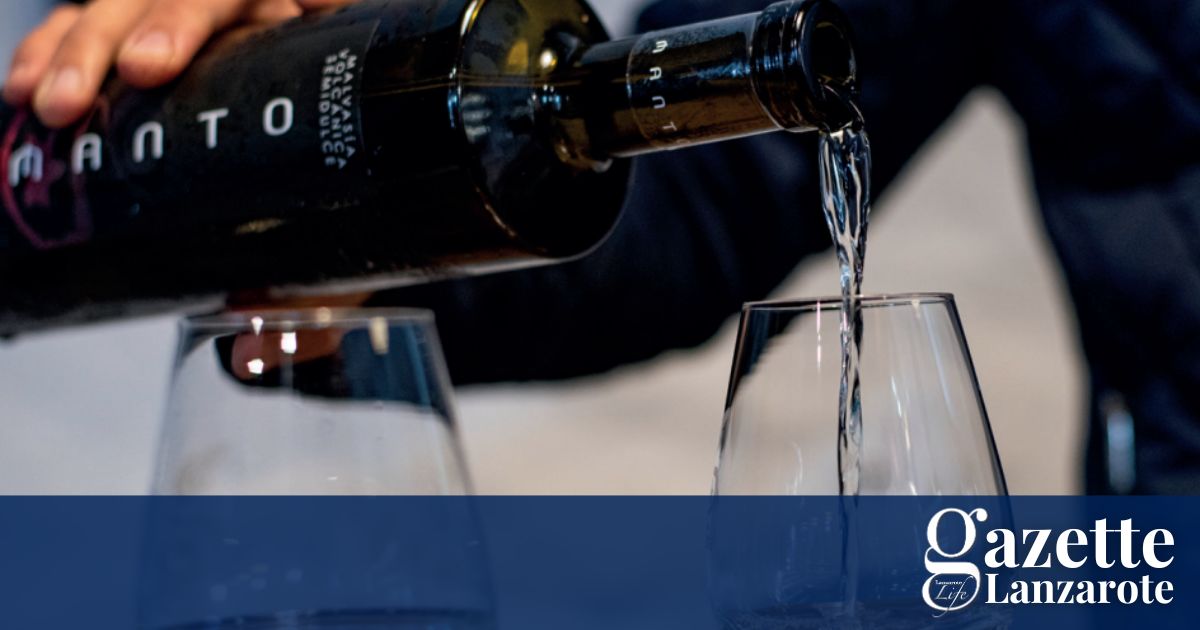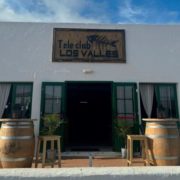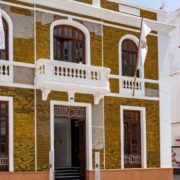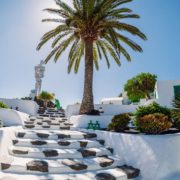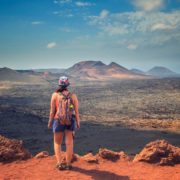There are over 20 officially registered bodegas (wineries) on Lanzarote. Here is our guide to the island’s bodegas.
Lanzarote’s bodegas range from extensive establishments that are open to visitors, such as La Geria and El Grifo, to small operations that are hardly larger than a garage. Some bodegas grow their own grapes, others source them from farmers on the island, and many combine both. Most bodegas produce several wines, marketed under the bodega’s name, or other brand names for specific wines.
New bodegas are constantly popping up so the list below may not include every bodega but it does include the most well-known:
Akaet: Small independent bodega in Tinajo, run by Juan Daniel Ramírez.
Bermejo: Located in La Geria at the foot of the pretty Juan Bello volcano, named after the founder of the bodega.
El Grifo: The oldest bodega in the Canaries, founded in 1775. Other brands: Ariana, Chimidas, Ana.
El Morro: Small Tinajo-based bodega.
Femés: The first bodega in Femes was launched in 2019.
Finca Fajardo: Bodega in La Vegueta working entirely with Listán Negro grapes. Guiguan: Small family bodega based in the heart of Tinajo.
Guiguan: Small family bodega based in the heart of Tinajo.
La Florida: Beautiful bodega near San Bartolomé. Other brands: Jameo.
La Geria: 19th century bodega in the heart of La Geria’s wine country. La Geria is open to the public and hosts an annual wine festival on 15th August. Other brands: Manta, Eco.
La Grieta: The northernmost bodega in the island, which uses grapes grown at altitudes of 500m and matures its red “Tinto Submarino” under the sea.
La Mareta: Small bodega based opposite the Cactus Garden in Guatiza.
Lanzarote Natural: Ecological shop in Tinajo. Other brands: T de Tinajo, Bodega La Morra.
Martinón: Masdache-based bodega founded by the Martinón family in 2006. Other brands: Mayor Guerra.
Puro Rofe: Named after rofe, the volcanic gravel that vines are grown in, this new bodega is based in Conil, Tías.
Reymar: Bodega set up in 1995 by the Perdomo siblings. Other brands:Vino Los Perdomos.
Rubicón: Beautiful bodega in a 300-year-old building in La Gería, with centuries-old eucalyptus trees outside. Other brands: Amalia.
Stratvs: A stunning bodega that produces award-winning wines.
Tierra de Volcanes: Yaizabased bodega.
Tisalaya: Miguel Morales is dedicated to creating “exquisite” white wines from the Diego grape. Other brands: La Vegueta.
Valle de Malpaso: Haríabased bodega.
Vega de Yuco: This large Masdache-based bodega produces several popular wines. Other brands: Princesa Gara, Esencia Yaiza, +Dach, Riscos de Famara. Aurum.
Vulcano: Impressive wines from this bodega, which has an attractive shop in Tías.
BUYING LANZAROTE WINES
It’s possible to buy some of the more popular local wines in local supermarkets, but these tend to be wines bottled in large quantities by the larger bodegas. If you want to sample smaller bodegas or more limited brands, then it pays to look a little harder.
There are several shops that specialise in local products on the island, and their selection of local wines will often be wider and well-chosen. Miguel Soria Ibéricos in Costa Teguise is one example, with several tempting local bottles. Restaurants will often take care in their selection of local wines, and it’s always worth studying the menu closely.
During the lockdown, Oliver Horton of Wine Tours Lanzarote set up an export business which now distributes wines in the British Isles: www.winetourslanzarote.com.

